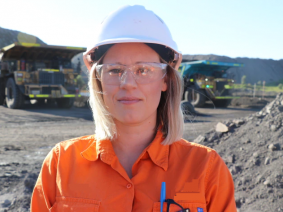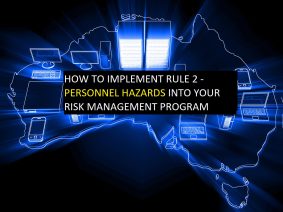The reputation of your industry and your membership organisation is essential to its survival. The trust and confidence the community (industry) will have a direct and profound effect on your organisations’ standing and longevity.
Occasionally, member organisations large and small, will need to respond to varying crises to maintain the reputation and standing of the industry. Plain and simple: these crises are usually caused by people, by members, by volunteers, by staff.
We call them malicious members. Malicious insiders are trusted members inside your organisation who deliberately and wilfully breach their duty to maintain the security of privileged information, techniques, technology, assets or premises.
Did you know …
- 1 in 5 lie on their job resumes
- 1 in 5 had misrepresented their qualifications
- 1 in 5 data breaches are caused by malicious employees
- 1 in 6 Working With Children Card holders have a criminal record
- 3 in 5 who have criminal convictions failed to admit them, even when asked during hiring interview (or membership application)
- 1 in 4 applicants assessed as ‘not qualified’ (sample size: 15,000)
- 1 in 4 potential employees admit to behaviours that they believe most employers would consider high-risk.
So when the crisis come and the cause comes to light, the community at large will be asking you:
- What, you don’t do an integrity check on your members in any substantial way?
- What, you never asked about their unintentional or intentional security breaches in the past?
- What, you never thought to question the string of obvious illegal acts, which didn’t show up on the Police check?
- What, you never asked about their drug or alcohol or gambling or personal debt situation which made them vulnerable to coercion or theft?
- What, you never asked about their untreated mental health condition which made them seriously unreliable?
While “reputation’ is considered an intangible concept, having a good one will benefit an organisation tangibly. This includes consumer preference – and support for your organisation in times of crisis or controversy.
If an organisation has a good reputation in the marketplace, people will prefer that organisation even if there are similar businesses offering the same products or services for different prices. It’s been said before – the difference between a customer and a client is that if a customer finds a cheaper price elsewhere, they will take it.
People are willing to pay a premium to join those organisations that are considered to have more of a prestigious reputation than others. It is a spiral upwards. It is a quality point of difference. When you can show evidence that the individuals who make up your membership have good reputations, you know can be confident that you will be able to weather any storm.
Studies show that there are components of organisational reputation used in reputation measurement systems – here are our top three:
- Ethics: the members collectively as an organisation behave ethically and become worthy of respect.
- Members: the organisation has talented members and insiders who are honest, trustworthy, tolerant, mature, loyal and resilient.
- Leadership: the organisational leadership leads, anticipates and innovates rather than follows.
Organisations looking to build on their reputations can put a few simple things in place to increase profitability, prestige and establish themselves in the market.
As trusted insiders contribute significantly to the cause and portion of crisis, your organisation can quickly build a strong personnel security regime – at the “entrance” of the organisation (eg. membership application process) as well as regular check-ups.
The regime should also include a (non-discriminatory) background suitability program which checks (and quantifies – eg. 1/5 to 5/5) a person’s Honesty, Trustworthiness, Tolerance, Maturity, Loyalty and Resilience. Not only will it assist the organisation to comply with Australian Standards for pre-employment screening, it also sets the tone for the Business-As-Usual security awareness culture of your organisation. It will also build up your reputation – making your organisation resilient and great.

Conclusion:
Talk to us about how our Organisational Suitability Assessment and how we can help strengthen your Reputational Risk. Phone (02) 61-71-41-71.
__________________________________________________
Read more:
If your industry membership has a reputation to uphold, then include us into your application process. Read more here.
Small Business Owner: Legitimately dig in to a Candidate’s past without fear of anti-discrimination, or bias. Read more here .
Article adapted from: http://www.businessinfocusmagazine.com/2012/10/the-importance-of-business-reputation/







